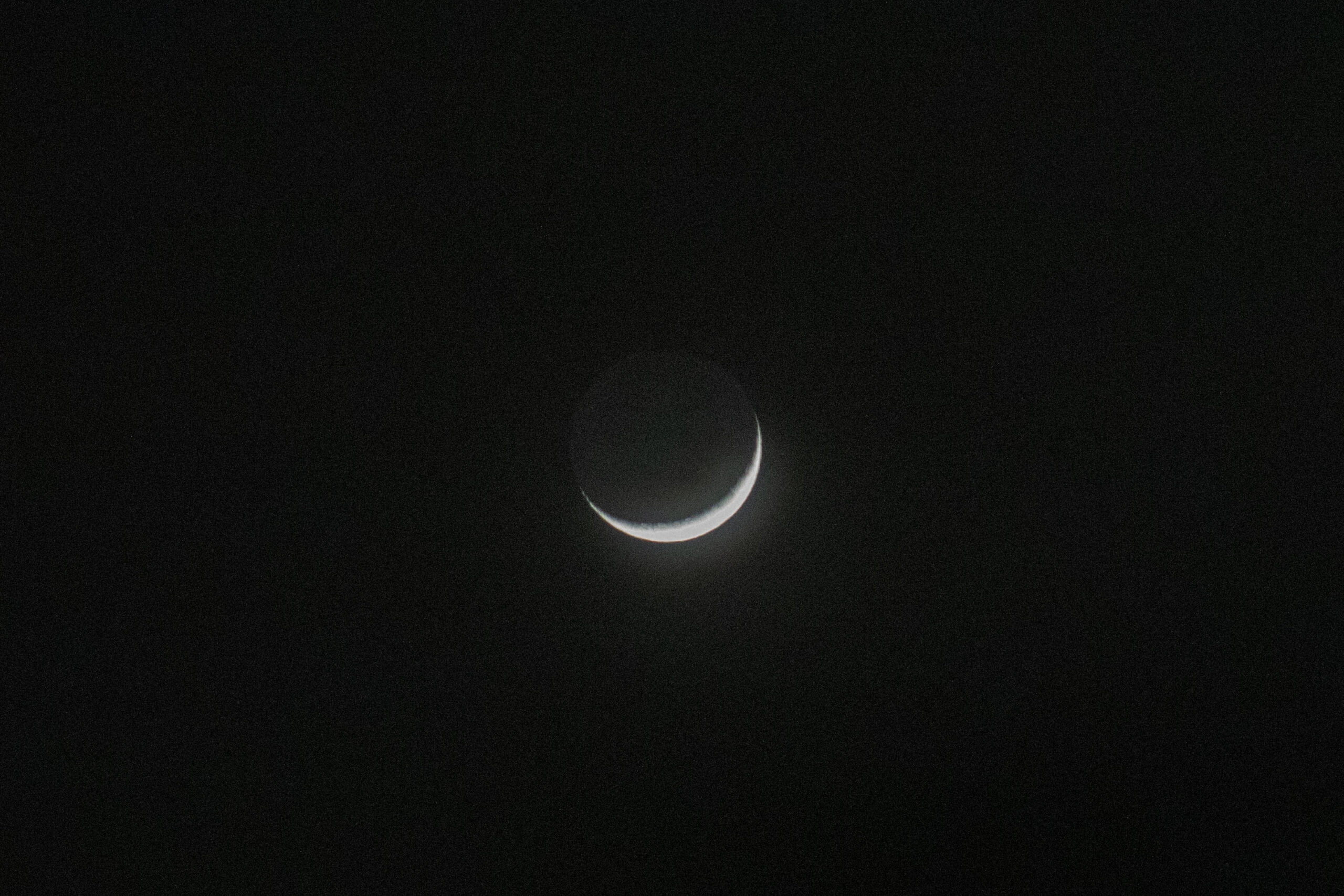A Palestinian Ramadan
What would Ramadan look like in a free Palestine?
It’s the eve of Ramadan in Gaza. A thin crescent moon has just appeared in the sky, declaring the start of the Islamic holy month. Mosques all around amplify the news. Children string up colourful little lights in each alleyway, the streets bustle with men and women rushing home, and the hands of strangers greet my hands as I scurry through the streets. Wrinkled smiles, bags of sweets, and strong voices wish me a Ramadan Kareem—a blessed Ramadan.
Lanterns light the way to every mosque, inviting everyone to gather for the long night prayers. I halt at a street vendor selling fresh, hot bread to buy some for my mother. The smell of food carries through each alley. The laughter of children brightens the courtyards of every mosque. Every home is celebrating tonight. This is the month of celebration.
Ramadan is a month-long Islamic tradition celebrated by 1.8 billion Muslims around the world. Although the basis for how the month is celebrated is the same across the world, each country has developed its traditions and rituals. The month is centered around Islamic teachings, building a community, and celebrating culture. Palestinian culture is rich with beautiful traditions. For this Ramadan, let us look at some beautiful Palestinian Ramadan traditions.
Mesaharatis are traditional dawn awakeners. During Ramadan, worshipers wake up at dawn to eat their morning meal before fasting for the remainder of the day until sunset. These Mesaharatis wander the streets of Palestinian cities and villages. They use drums and sing traditional poems to awaken Muslims for dawn. Another special tradition specific to Jerusalem is the Ramadan cannon. For hundreds of years, this celebratory cannon has been fired every day at sunset to notify worshippers to break their fast.
In the Gaza Strip, families have iftar, the meal to break their fast, by the beautiful sea. Families enjoy their meals in the salty sweet air and watch the view of a hazy sunset. Food is a big part of Ramadan culture. Most countries have specific dishes that are only eaten during Ramadan. In Gaza, they enjoy dishes like maqluba—a rice, meat, or vegetable dish that is flipped upside down, and maftoul—known as Palestinian couscous, made with aromatic spices, chicken, and chickpeas. In the West Bank, they enjoy musakhan—flatbread topped with delicious sumac chicken and caramelized onions, and mansaf, rice served with tender lamb and yogurt.
Another large aspect of Ramadan is charity. Throughout the month, people are taking initiatives to raise money, feed those in need, or volunteer to help others. One popular Palestinian tradition is Takaya. This is where groups of people prepare and provide warm meals for breaking the fast to low-income families. Palestinians around the world are known for their generosity and hospitality. Ramadan is a special time, when Palestine comes to life.
This is how Palestinians spend their Ramadan. Like any other people, they have a rich history of traditions and cultures that make this time beautiful and memorable.
This year, they celebrate their Ramadan in refugee camps in Rafah, praying in mosques that have become rubble, and waiting for aid to break their fasts. The genocide in Palestine, and the ethnic cleansing of their culture, continues through this time of the year. This year, Muslims all around the world have dedicated this Ramadan to Palestine. They remember its strength, resilience, and all those who continue to be murdered during the genocide.
The oppression continues and the once colourful and beautiful Ramadan is currently a month of famine and genocide. As Israel continues to block aid, most Palestinians do not have food to break their fasts with. The once-laughing children are now crying due to malnourishment and lack of water, ultimately leading to their deaths. Rafah, the once-declared safe zone, is no longer safe as it is constantly being attacked. The sweet sounds of drums and poems are replaced with gunshots and bombs.
There are no mosques left undamaged. Yet Palestinians gather every night and stand together in large groups over the rubble to pray as a community. This is an ethnic cleansing. The Israeli government has not only denied Palestinians basic rights but also found ways to stop them from practicing their traditions, hoping to erase the Palestinian culture. This piece hopes to capture some of those traditions and help you picture how Ramadan would be in a free Palestine. By educating ourselves, we can preserve this culture through our knowledge and continue to support Palestinian businesses and restaurants during Ramadan. Carrying the Palestinian legacy of storytelling and resistance by gaining knowledge not only about the genocide but also about Palestinian culture, food, clothing, and literature. This is what we can do to play our part in combatting ethnic cleansing.
Associate Features Editor (Volume 50) — Rafiqa is a recent graduate from the Professional Writing and Communication program in which she wrote her first novel The Custard Apple Tree, an ode to her grandmother who survived the 1947 India-Pakistan Partition. Drawing on her background as an author specializing in historical fiction and a love for storytelling, Rafiqa hopes to bring forward compelling articles challenging Western narratives and societal stigmas and bridging a pathway for diversity. She hopes her experience at The Medium will be a platform for her to bring unheard and oppressed voices to be heard through human interest stories and other interesting articles!


